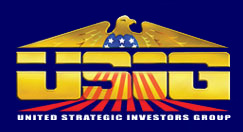


FUTURES MARKET CONTRACTSEnergy | Financials | Grains | Live Stock | Metals | Softs

The Futures Market Contacts - What we know as the futures market of today came from some humble beginnings. Trading in futures originated in Japan during the 18th century and was primarily used for the trading of rice and silk. It wasn't until the 1850s that the U.S. started using futures markets to buy and sell commodities such as cotton, corn and wheat.
A futures contract is a type of derivative instrument, or financial contract, in which two parties agree to transact a set of financial instruments or physical commodities for future delivery at a particular price. If you buy a futures contract, you are basically agreeing to buy something, for a set price, that a seller has not yet produced. But participating in the futures market does not necessarily mean that you will be responsible for receiving or delivering large inventories of physical commodities—remember, buyers and sellers in the futures market primarily enter into futures contracts to hedge risk or speculate rather than exchange physical goods (which is the primary activity of the cash /spot market ). That is why futures are used as financial instruments by not only producers and consumers but also speculators .
The consensus in the investment world is that the futures market is a major financial hub, providing an outlet for intense competition among buyers and sellers and, more importantly, providing a center to manage price risks. The futures market is extremely liquid , risky, and complex by nature, but it can be understood if we break down how it functions.
ENERGY: Crude oil | Gasoline | Heating Oil | Natural Gas
FINANCIALS: US-Dollar | CRB index | Stock Index | Foreign Exchange
GRAINS: Corn | Soy Bean | Wheat | Oats
LIVESTOCK: Cattle | Feeder Cattle | Lean Hogs | Pork Bellies
METALS: Gold | Silver | Platinum | Copper
SOFTS - Coffee | Cocoa | Cotton | Sugar | Orange Juice | Lumber
Home |
Contact | Client
Services |
FAQ
| News | Quote board
| Resources
Legal | Privacy Policy | Site Map
" Futures and options trading involve risk of loss and may not be suitable for everyone." | © 2004 United Strategic Investors Group, Inc. All rights reserved